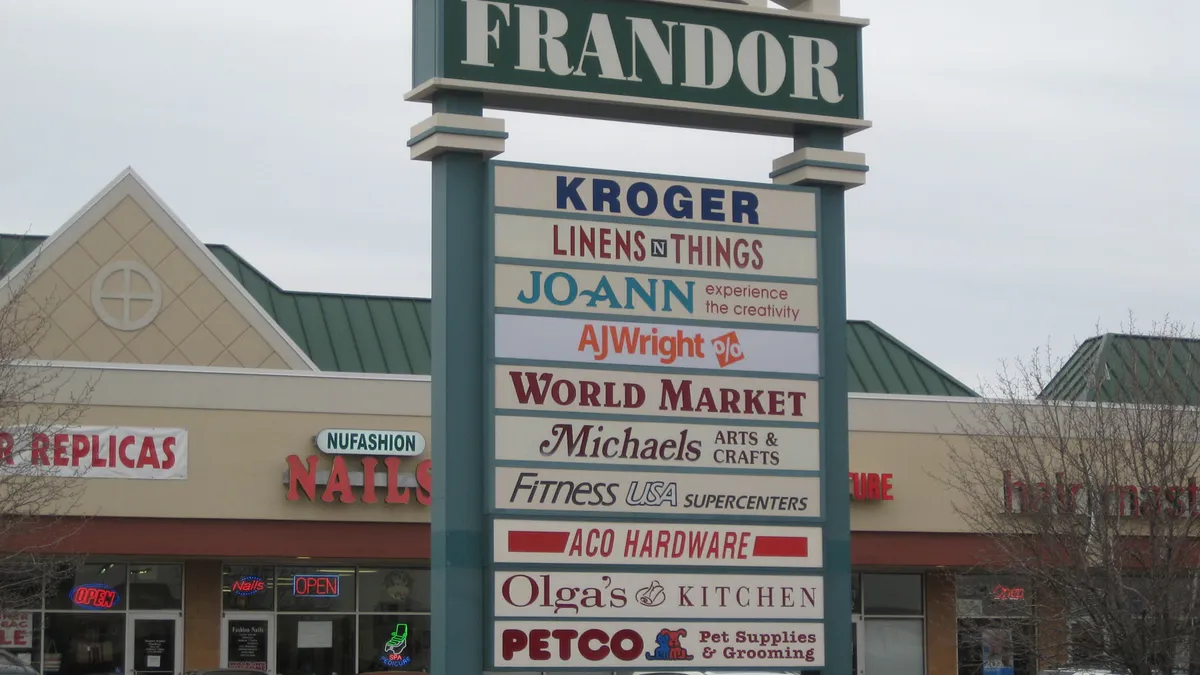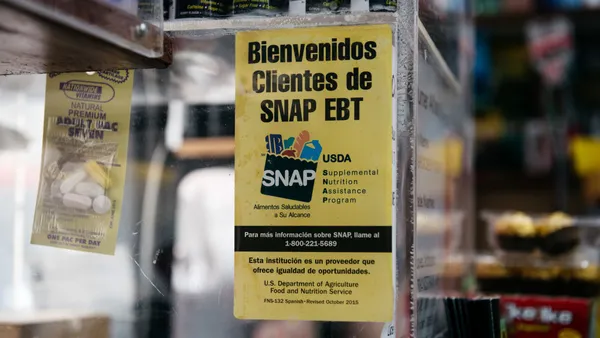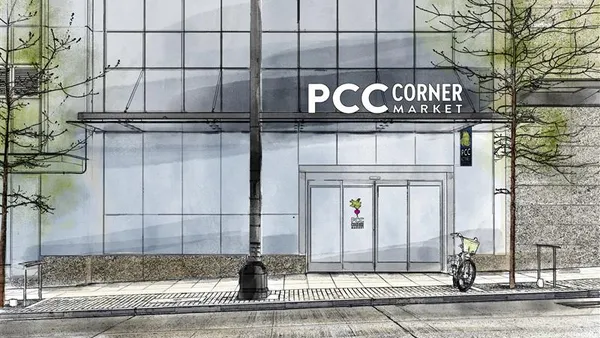Dive Brief:
- Grocery store openings increased by 29.4% in 2018, resulting in 17 million square feet of additional grocery real estate in the U.S., according to JLL's 2019 Grocery Tracker first reported by Marketwatch.
- States that added the most space include Florida, California and Texas. Florida added 9.7% due to Publix's recent expansion, while California saw 7.8% growth with Sprouts, Aldi and Smart & Final expansions. Texas got a 7.8% increase from Kroger and H-E-B.
- Grocery real estate saw $9.9 billion in investment in 2018, which is down year-over-year. JLL Retail Capital Markets Lead Chris Angelone said that the decrease may be due to "stricter underwriting standards and lack of Trophy and Class A grocery-anchored deals on the market last year."
Dive Insight:
While the report highlights the expanding footprint of grocery stores, it doesn't mean that the locations are getting bigger. Many grocers are turning to more smaller formats with local offerings that are suited for quicker, more frequent trips that are becoming more common among shoppers.
While the industry saw a decrease in grocery investment in 2018 due to the real estate shift, JLL is bullish on grocery's future. The real estate firm expects an uptick in premium grocery locations going on the market this year as REITs continue to sell some of their smaller neighborhood and community centers. As traditional grocers opt out of typical spots like strip malls, they're looking for new spaces to house their upgraded stores. The locations REITs are looking to offload are often ideal for many grocers, which allows them to offer very curated selections to attract their target audience.
At last year’s Groceryshop conference in Las Vegas, analysts and executives highlighted the purpose behind scaling down. Store sizes have shrunk 20% in the 21st century and productivity is up 20% to 30%, which reflects dwindling center store sales. These new, scaled-down grocers are more focused on fresh foods found in the perimeter. Publix's Greenwise banner, for example, only houses its organic and fresh Greenwise private label line.
Other grocers that have scaled down include Aldi, which just opened smaller stores in London and could bring them to the U.S., and Lidl, which is opening stores that range in size. Hy-Vee's new HealthMarket concept covers just over 15,000 square feet, and Sprouts has taken off with its smaller, inverted store model. Whole Foods also got into the game, recently opening a bodega-like format called the Daily Shop in Manhattan's Chelsea neighborhood in New York City.
On the opposite end, H-E-B has been scaling up with experience-driven locations. The retailer has been opening multi-level markets that feature public art displays, coffee shops, eateries, and wine and beer tastings.
Whether it's an abundance of small stores or fewer large stores, grocers are looking for more unique spaces to enter as they vie for customer attention. Based on JLL's outlook, these formats and locations should balance out as retailers look to showcase their latest offerings.













